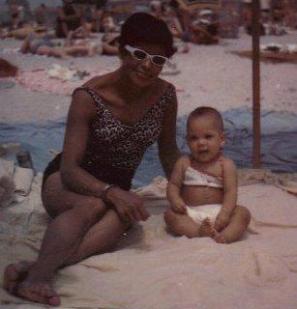According to Francis Chan, I really do. I was one of those people who waited in eager anticipation of the new Chan/Sprinkle book, Erasing Hell, because I was simply captivated with intellectual curiosity. The controversy ignited by the release of the Rob Bell’s Love Wins promotional video and the twitterverse erupting in response that culminated on the cover of Time magazine was literally a cerebral feast for me. The countless blog posts, response books, and thoughtful post-mortem articles about what we learned as a community were added brain gravy.
I read Love Wins before I read Erasing Hell, mostly because I didn’t want to be one of “those people” who reacted without a complete set of facts, but more so because I thought Chan and Sprinkle were writing a response to it. It turns out that they did and they didn’t – Erasing Hell was much more than that.
While I was intellectually satisfied by finally reading Erasing Hell, I was also deeply convicted that prior to reading it, I missed the whole point. Shaping theology for 21st century and sound exegetical interpretation wasn’t the point. The fact that people are going to hell is.
As I said earlier, Erasing Hell is and isn’t a response to Love Wins, and I don’t believe it was intended to be. The approach to the areas of Bell’s book that begged for correction, namely that Gehenna was the city dump, hell is a place for correction and purification, and the gates of the New Jerusalem are eternally open and waiting for those released from the fire were addressed with in a spirit of love and correction with respect. By chapter 4, roughly mid way through the book, there are no overt references to Love Wins.
Chan and Sprinkle then focus on what is really at issue – there is a real hell where people who are living all around us today will go if they don’t accept Jesus and start living differently.
“We can’t be wrong on this one.”
“When it comes to hell, we can’t afford to be wrong.”
“Don’t forget to tremble.”
Structured like a Pauline epistle, Erasing Hell first sets out and corrects the erroneous doctrine of the day, pressing into scripture and scholarship with equal intensity as Chan and Sprinkle refute the more dangerous aspects of the point of view expounded by Bell. Before moving into the exegesis of the new testament teachings of Jesus, John, Peter and Jude, they ensure that the 1st century foundations for understanding the content of the teachings was laid, most notably that for 1st century Jews, hell was punishment as a result of God’s righteous judgment, would have been a given, which added the appropriate heaviness to the expounded teachings of Jesus and his followers.
Chan and Sprinkle then urgently explain how we should not only think differently in light of this information, but live differently. With the same level of loving admonition that Paul wrote to the Ephesians in the later chapters of that epistle, they go on to paint solemn warnings for Christ’s church today.
To say that the imagery of hell in this context is sobering is an understatement. Judgment. Punishment. Wrath. Lake of Fire. Utter darkness. Weeping and gnashing of teeth. Whether or not this is an eternal destiny or final annihilation isn’t ultimately decided by Chan and Sprinkle (although Chan admittedly leans towards the everlasting and eternal view vs. destructive), but considering the imagery, I, like the authors, have a new appreciation for the cross and Jesus, and his willingness to endure that horror and agony for me.
And at this point, I repented – “God wants us to do more than intellectually agree with scripture, he wants us to live in light of them.” Chan and Sprinkle make sure that the reader understands that this is life and death – most likely in perpetuity – and this subject impacts the fate of every person that has ever breathed on this planet. I am encouraged to grieve, mourn and rejoice and live my life in the beautiful tension that is created by knowing, and serving and loving a God whose ways are so much higher than ours.
Hell is real, judgment and wrath aren’t pretty, but God is God, and he is good, even when we can’t understand His ways.

